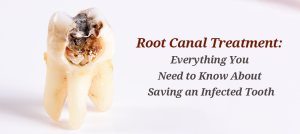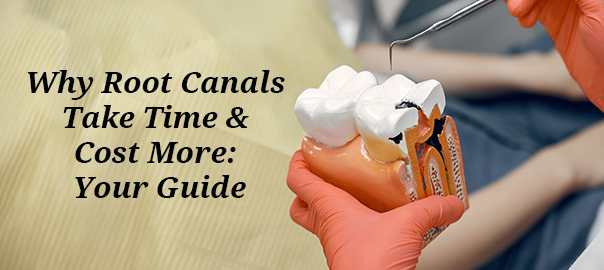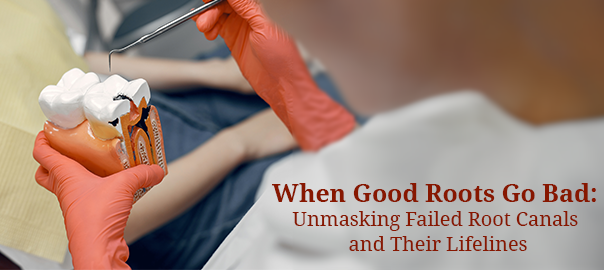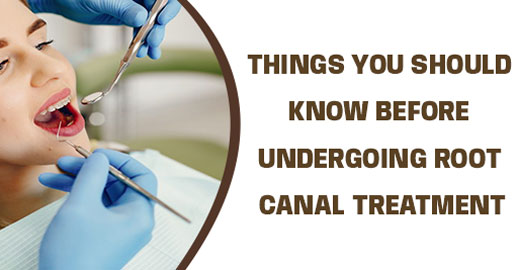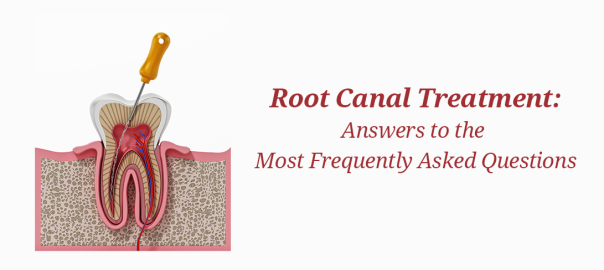
Root Canal Treatment: Answers to Your Most Frequently Asked Questions
Introduction
Root canal treatment (RCT) frequently has an unfair negative image. Numerous individuals connect it with suffering and unease, which causes them to be reluctant about the process.
Nonetheless, the truth is entirely different. A root canal is intended to alleviate pain rather than induce it, and it is essential for preserving a natural tooth from being pulled.
This blog addresses the most commonly asked questions regarding root canal treatment, aiding you in feeling more knowledgeable, assured, and ready to move forward in maintaining your natural smile.
What Is a Root Canal Treatment?
During a root canal, also referred to as an RC treatment or RCT, a dentist removes damaged or infected pulp from inside a tooth, cleans the canals, and closes them to stop further infection.
Since saving the natural tooth is always their main treatment strategy, dentists choose to opt for a multistep treatment strategy rather than simply pulling the tooth.
If the tooth cannot be fixed, we will consider options for replacing it. Nevertheless, maintaining the original tooth whenever feasible is paramount, since no substitute can entirely mimic its inherent strength and function.
When Is a Root Canal Needed?
- Deep dental decay that has affected the pulp.
- Severe cavities or multiple dental treatments on an individual tooth
- Infections or swellings around the tooth root
- Tooth cracks or injury resulting in nerve exposure
Modern advancements ensure painless root canal treatment using local anesthesia, making it a comfortable and efficient process.
Is Root Canal Therapy Painful?
A major misunderstanding regarding RCT is that it causes pain. With advancements in dentistry and efficient anesthesia, the process is nearly pain-free and overall comfortable.
In reality, root canal therapy alleviates discomfort caused by infection, helping you feel significantly improved after the treatment.
Signs That Might Indicate You Need a Root Canal
Curious about how to know if a root canal is necessary? Here are several typical signs:
Intense dental pain, particularly when biting or putting pressure on it.
- Extended sensitivity to high or low temperatures
- Enlarged or sensitive gums surrounding the impacted tooth.
- Darkening or staining of the tooth
- Bump resembling a pimple (dental abscess) on the gums
If you notice any of these symptoms, contact your dentist right away to avoid complications.
Alternatives to Root Canal Treatment
If an RCT isn’t possible, alternatives include:
- Direct filling – Works only for minor decay, not deep infections.
- Tooth extraction – Can cause complications like teeth shifting and bone loss in later periods of life.
- Dental implants or bridges – More expensive than RCT but may be necessary for severely damaged teeth.
Conclusion: A root canal is the best option to save your natural tooth.
What is the Duration of a Root Canal Procedure?
Usually, one or two sessions, with each lasting 60-90 minutes.
In some instances, a single-visit RCT can be done, but complicated infections may require several appointments.
What Occurs If You Postpone a Root Canal?
Postponing root canal therapy may result in:
- Transmission of infection to adjacent teeth and gums
- Development of painful dental abscesses
- Loss of teeth, necessitating costly substitutes
- Risk of severe systemic infections if bacteria invade the bloodstream.
Do I Need a Dental Crown Following RCT?
Indeed, in many situations, a crown is essential to safeguard the compromised tooth and avert future harm.
Categories of Crowns:
- Metal – Functionally efficient but less preferred due to visual concerns
- Porcelain-Fused-to-Metal (PFM) – Durable and aesthetically pleasing
- Ceramic/Zirconia – Extremely attractive and sturdy
How Long Do Root Canals Last?
RCT is a treatment option to preserve the tooth with infection, allowing it to remain in function. If the tooth is sealed properly, RCT may last 5-15 years unless any inadvertent source causes reinfection, fracture, or loosening of the tooth. Good oral hygiene, regular dental checkups, and avoiding hard foods help extend its lifespan.
Is it possible for a root canal to be unsuccessful?
Although uncommon, root canal failure may happen because of:
- Insufficient eradication of the infection
- Fissures or breaks in the repaired tooth
- Inadequate sealing or reinfection
- Damaged crown, compromised oral hygiene
Solution: Retreatment or endodontic surgery (Apicoectomy) may be required.
Is Extraction Better Than a Root Canal?
Preserving your natural tooth is always the best option. Tooth extraction can lead to:
- Shifting of nearby teeth, affecting your bite
- Jawbone loss, leading to facial sagging
- Expensive replacements like implants or bridges
What Foods Should I Eat After a Root Canal & How Can I Ensure a Smooth Recovery?
What Should I Eat After a Root Canal?
Soft foods like:
- Yogurt
- Mashed potatoes
- Soft rice
- Blended soups
Avoid:
- Hard, sticky, or very hot foods for a few days
Recovery Tips
- Take prescribed medications and antibiotics if needed.
- Avoid chewing on the treated tooth until fully healed.
- Maintain good oral hygiene (gentle brushing and flossing).
- Use a cold compress if there’s mild swelling.
Cost of Root Canal Treatment and Crowns at Clove Dental
At Clove Dental, we offer high-quality Root Canal Treatment (RCT) performed by skilled specialists using advanced technology. The cost of RCT depends on the tooth type, complexity, and technique used.
Root Canal Treatment Pricing:
| Treatment Type | Starting Price |
|---|---|
| RCT | Starting at ₹5,350, Depending upon the chosen technique, the prices differ. |
| Re-RCT | Starting at ₹10,100 |
The RCT fees in India vary based on multiple factors:
- Infection severity: Critical instances might need specialized interventions.
- Technique Used: The method used for cleaning and shaping the canals, whether it be hand filing or rotary also impacts the cost. For example, laser assisted RCT is little more expensive than ultrasonic cleaning, but provides the most advanced disinfection of the canal.
- Substances utilized for fillings and crowns.
Dental Crown Pricing:
A dental crown is often recommended after RCT to protect the treated tooth. The cost varies based on the material chosen:
| Type of Crown | Starting Price at Clove Dental |
|---|---|
| Metal | Starting at ₹3,290 |
| Porcelain-Fused-to-Metal (PFM) | ₹4,390 |
| Ceramic/Zirconia | ₹8,890 |
At Clove Dental, we ensure transparent pricing with flexible payment options and EMI plans available for select treatments.
Key Takeaways
- Root canal treatment is generally painless, though mild discomfort may occur during the procedure, which can be easily managed with analgesics while effectively eliminating infection.
- Common signs include severe toothache, sensitivity, and swelling.
- RCT cost in India varies based on tooth type and treatment complexity.
- Delaying RCT can lead to serious complications.
- A dental crown helps protect the treated tooth.
- Good oral hygiene ensures long-lasting results.
Don’t wait for the pain to get worse! Schedule your root canal consultation today at Clove Dental!
By-
Dr. Shreya Singh
Leave a Reply
Leave a Reply
POPULAR POST









